 Based on the book by Eric Schlosser, directed by Richard Linklater; starring Greg Kinnear as Don Anderson (VC of marketing for fast-food giant Mickey's), Wilmer Valderrama as Raul (immigrant who works in meat packing plant), Bruce Willis as Harry Rydell and Kris Kristofferson as Rudy Martin (the old ranch owner). Ethan Hawke and Avril Lavigne also make appearances.
Based on the book by Eric Schlosser, directed by Richard Linklater; starring Greg Kinnear as Don Anderson (VC of marketing for fast-food giant Mickey's), Wilmer Valderrama as Raul (immigrant who works in meat packing plant), Bruce Willis as Harry Rydell and Kris Kristofferson as Rudy Martin (the old ranch owner). Ethan Hawke and Avril Lavigne also make appearances.
Don Anderson is the well-meaning VP of Mickey's, one of the nation's largest fast food chains. His claim to fame: He invented Mickey's best selling hamburger, "The Big One." Don takes the job of investigating recent claims by independent meat testers who say that Mickey's Big One contains significantly more feces than the average fast food burger. He travels to the Mickey's main supplier, a meat-packing plant in Texas, where he discovers a lot of disturbing truth about the fast-food industry as well as the American way of life in general. I hear this movie was inspired partly by Morgan Spurlock's Super-size Me.
Rudy Martin (Kristofferson) gives a powerful soliloquy about "The Machine" that is overtaking America. The meat-packing plant employed by Mickey's represents this Machine. The machine destroys human life either by economic exploitation or by literally hacking off people's limbs in its meat grinders. The machine gobbles up independent ranchers who want to maintain fair business practices. It doesn't care about animal or human suffering or whether it feeds cow manure to the fast-food eating populace every day. All this for "pennies a' pound."
Later on Don meets up with Harry (Bruce Willis) who delivers a similar soliloquy, only this time in favor of the Machine. On one hand, Don has a problem with there being "sh-- in the meat." Harry, on the other hand, has a problem with Americans getting to paranoid about germs. "Just cook the meat," Harry says. He goes on to say the real problem with America is that "everyone needs to grow up and see the big picture." He points out that the machine is a blessing to immigrants who go from working for four dollars a day in Mexico to making ten dollars an hour in a meat-packing plant.
It is true that the Machine provides jobs for people. But, true to the machine's form, these jobs are mechanical at best, dehumanizing at worst. Take people's orders. Push a button. Flip burgers. Process cow carcasses as blood and refuse squirts all over you.
The Machine tends to take more than it gives. A few benefit from the Machine, but most do not. The few who benefit keep speeding up the line despite the consequences this has on people and the environment. They will consume as much human life and natural resources as they can get away with. The only thing that matters to the few who control this Machine is more "pennies a' pound."
At one point in Fast Food Nation a car-full of young people try to free the cattle by cutting a hole in the meat factory's fence. They do their best to herd the cattle toward the hold, but the cows run away from the hole. They have to leave soon after that, as some of the factory's workers are coming, but one of the girls stays behind for a moment to ask the cattle, "Don't you want to be free?"
We humans bear a resemblance to these cows. We like our fence. Although we hear the bone-grinding machinery in the distance, we can't resist the temptation of feeling secure. False security is acceptable to us so long as we feel secure. We want to preserve our political freedom, but only in controlled doses. We defend our right "to be left alone" up until someone hangs by one leg, upside down, and puts a knife to our neck... then we might acknowledge that something is wrong with the world around us. Average people wait until they're teetering over the bone grinders of life before they start to think "why am I doing this?" ... but by this time it is too late for change.
The aforementioned young people were right in taking action. They were on the right track when they tried to face their problem head on. Their failure would not have been all loss had they stopped to consider what is true change.
Answer: True change is an aftereffect of transformed hearts. Teach people how and why they should care and there will be change indeed.
Fast Food Nation
Subscribe to:
Post Comments (Atom)


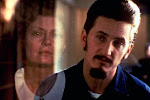


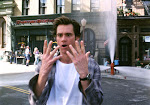
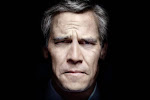
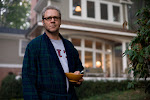
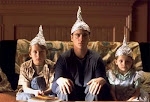

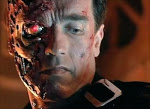
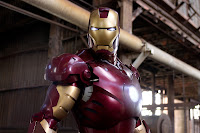






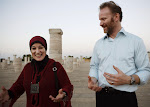


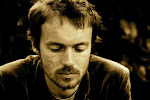
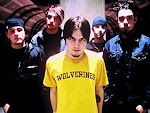

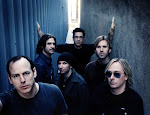
3 comments:
Hi Patrick! Thanks for posting a comment. Haven't seen "Fast Food Nation" myself yet, but I'll add it to my list. I dig your post.
My favorite part: "Answer: True change is an aftereffect of transformed hearts. Teach people how and why they should care and there will be change indeed."
I concur. I very, very much concur, with all my heart.
Peace, Caroline
Yes, good conclusion. Greg Kinnear's character provides an interesting example of someone who hasn't changed at the heart level, as he caves in to self-interest and drops his investigation.
A powerful and thought provoking movie, I thought. I've never seen so many people look away at the end either!
Read the book by Eric Schlosser if you get the chance. It will probably change your mind about fast food forever.
Post a Comment